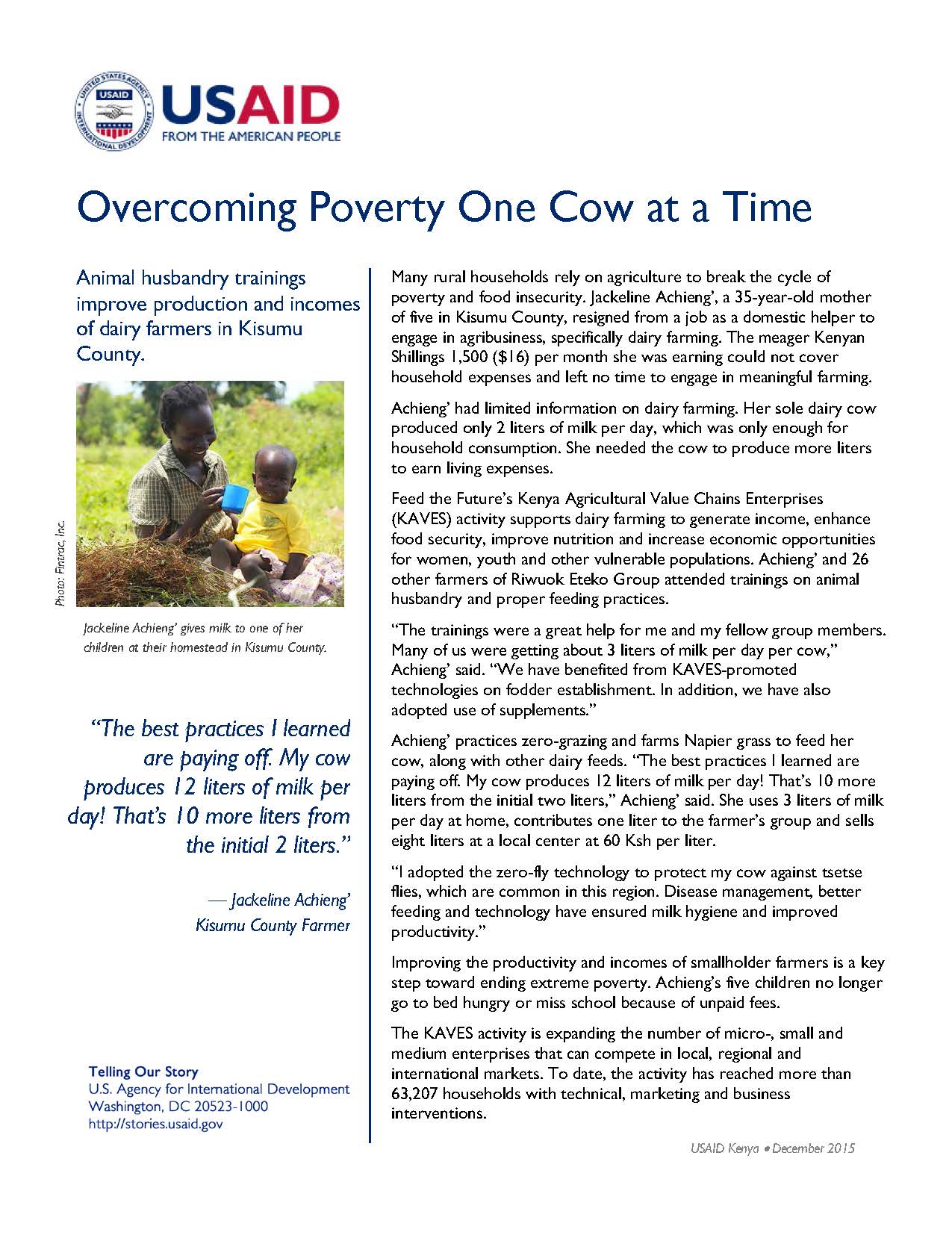Many rural households rely on agriculture to break the cycle of poverty and food insecurity. Jackeline Achieng’, a 35-year-old mother of five in Kisumu County, resigned from a job as a domestic helper to engage in agribusiness, specifically dairy farming. The meager Kenyan Shillings 1,500 ($16) per month she was earning could not cover household expenses and left no time to engage in meaningful farming.
Achieng’ had limited information on dairy farming. Her sole dairy cow produced only 2 liters of milk per day, which was only enough for household consumption. She needed the cow to produce more liters to earn living expenses.
Feed the Future’s Kenya Agricultural Value Chains Enterprises (KAVES) activity supports dairy farming to generate income, enhance food security, improve nutrition and increase economic opportunities for women, youth and other vulnerable populations. Achieng’ and 26 other farmers of Riwuok Eteko Group attended trainings on animal husbandry and proper feeding practices.
“The trainings were a great help for me and my fellow group members. Many of us were getting about 3 liters of milk per day per cow,” Achieng’ said. “We have benefited from KAVES-promoted technologies on fodder establishment. In addition, we have also adopted use of supplements.”
Achieng’ practices zero-grazing and farms Napier grass to feed her cow, along with other dairy feeds. “The best practices I learned are paying off. My cow produces 12 liters of milk per day! That’s 10 more liters from the initial two liters,” Achieng’ said. She uses 3 liters of milk per day at home, contributes one liter to the farmer’s group and sells eight liters at a local center at 60 Ksh per liter.
“I adopted the zero-fly technology to protect my cow against tsetse flies, which are common in this region. Disease management, better feeding and technology have ensured milk hygiene and improved productivity.”
Improving the productivity and incomes of smallholder farmers is a key step toward ending extreme poverty. Achieng’s five children no longer go to bed hungry or miss school because of unpaid fees.
The KAVES activity is expanding the number of micro-, small and medium enterprises that can compete in local, regional and international markets. To date, the activity has reached more than 63,207 households with technical, marketing and business interventions.








Comment
Make a general inquiry or suggest an improvement.